#titus lucretius carus
Text
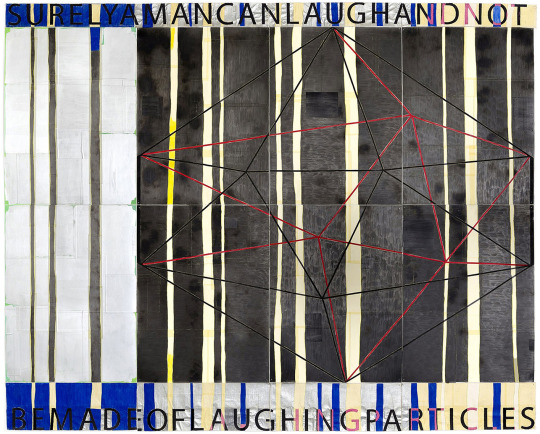
Dianna Frid, Be Made of Laughing Particles, (paper, paint, graphite, embroidery floss on canvas, and colored pencils), 2013 ["Surely a man can laugh and not be made of laughing particles", a line from Lucretius' De Rerum Natura (On the Nature of Things), from the translation by Rolfe Humphries] [© Dianna Frid]


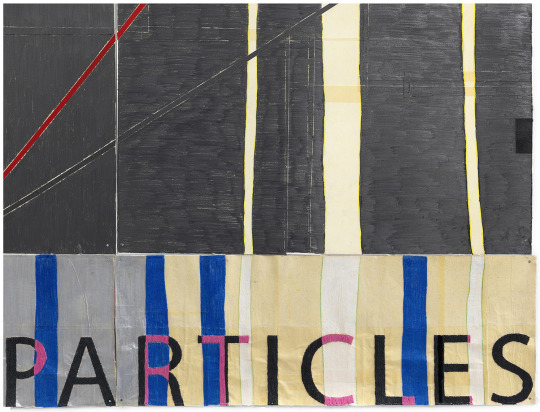

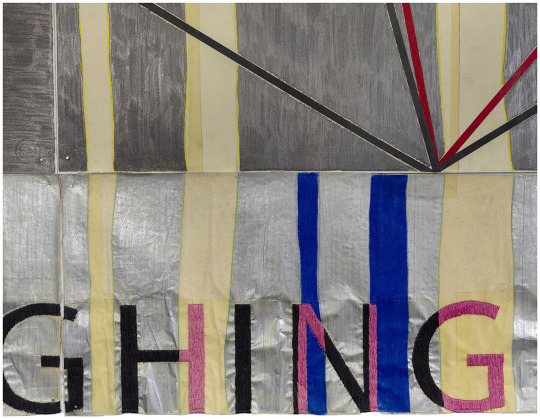
#art#mixed media#poetry#visual writing#lettering#geometry#dianna frid#rolfe humphries#lucrezio#tito lucrezio caro#titus lucretius carus#2010s
14 notes
·
View notes
Text
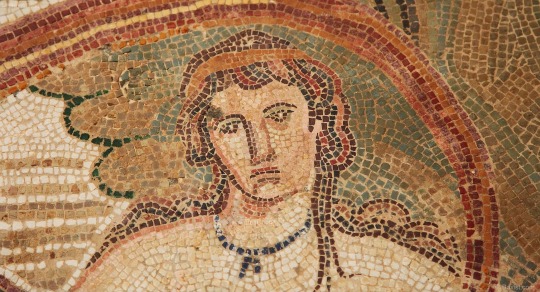
O miseras hominum mentes, o pectora caeca!
qualibus in tenebris vitae quantisque periclis
degitur hoc aevi quod cumquest! nonne videre
nihil aliud sibi naturam latrare, nisi ut qui
corpore seiunctus dolor absit, mente fruatur
iucundo sensu cura semota metuque?
Such pitiable human minds of men, such limited views!
In what gloom of life, in how great perils is passed
Your poor span of time! not to see
that all nature cries out for is this, that pain
be taken from the body, and that the mind, kept far from
worries and fear, instead experience joy!
—Titus Lucretius Carus, De Rerum natura lib ii, lines 14-19 (70 BCE)
[Robert Scott Horton]
6 notes
·
View notes
Text
A Hymn to Epicurus
Lucretius, De Rerum Natura 3.1-13
You who first were able, out of such great darkness,
To lift a light so bright, illuminating life’s good things,
You it is I follow, o glory of the Greek people,
And in the marks you’ve pressed I now place the fashioned
Traces of my feet – not so much desirous
Of vying with you, no, but rather out of love
That I desire to imitate you; for how could a swallow compete
With swans, or what could kids, with their shaky joints,
Be able to do in a race like a horse’s mighty power?
You, father, are the discoverer of things,
You supply to us our ancestral precepts; from
Your writings, famous one, as bees in flowering glades
Taste of all things, in like fashion we ourselves devour
All your golden sayings – golden, ever worthiest
Of life that never ends.
E tenebris tantis tam clarum extollere lumen
qui primus potuisti inlustrans commoda vitae,
te sequor, o Graiae gentis decus, inque tuis nunc
ficta pedum pono pressis vestigia signis,
non ita certandi cupidus quam propter amorem
quod te imitari aveo; quid enim contendat hirundo
cycnis, aut quid nam tremulis facere artubus haedi
consimile in cursu possint et fortis equi vis?
tu, pater, es rerum inventor, tu patria nobis
suppeditas praecepta, tuisque ex, inclute, chartis,
floriferis ut apes in saltibus omnia libant,
omnia nos itidem depascimur aurea dicta,
aurea, perpetua semper dignissima vita.
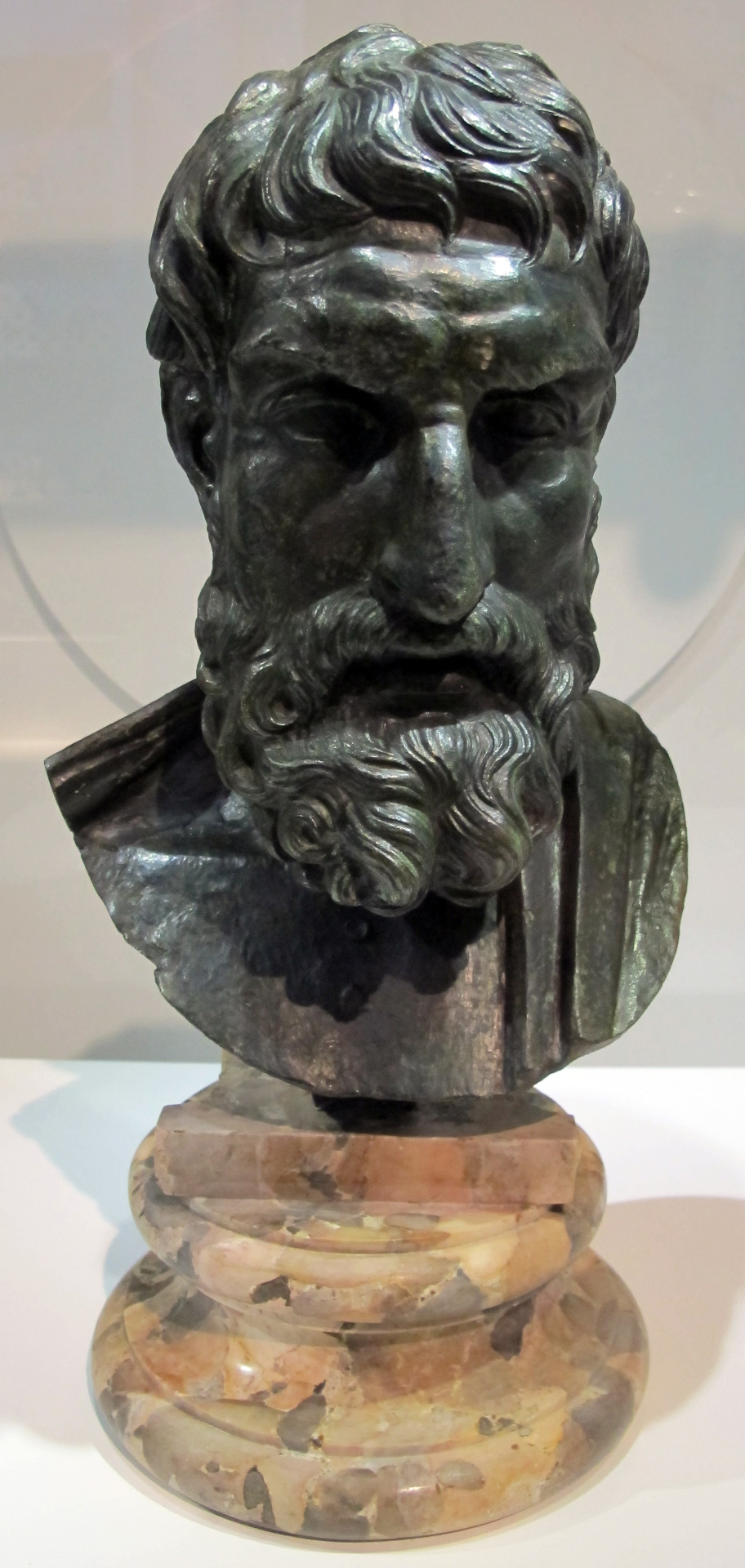
Bust of Epicurus of Samos (342-270 BCE), founder of the Epicurean school of philosophy (the Garden), from the Villa of the Papyri at Herculaneum. Roman copy after a third century BCE Greek original. Now in the collection of the National Archaeological Museum, Naples. Photo credit: Sailko/Wikimedia Commons.
#classics#tagamemnon#Latin#Latin language#lingua latina#translation#Latin translation#Ancient Rome#Roman Republic#Lucretius#Titus Lucretius Carus#ancient philosophy#Hellenistic philosophy#Epicurus#Epicureanism#De Rerum Natura#didactic poetry#dactylic hexameter#hymn
72 notes
·
View notes
Photo
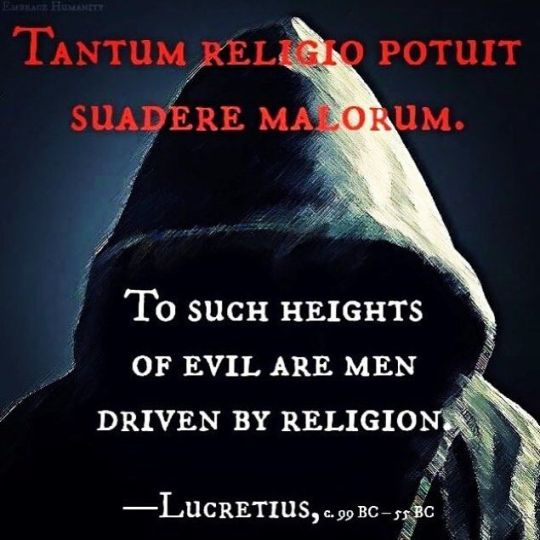
"Tantum religio potuit suadere malorum
To such heights of evil are men driven by religion.”
-- Lucretius, c.99 BC - 55 BC
#Lucretius#Titus Lucretius Carus#religion#religion poisons everything#evil#religion is evil#religion is a mental illness
44 notes
·
View notes
Video
youtube
🟣 Titus Lucretius Carus / Lucretius / Philosophy #Lucretius #Philosophy
"TO NONE IS LIFE GIVEN IN FREEHOLD; TO ALL ON LEASE."
LUCRETIUS TITUS LUCRETIUS CARUS WAS A ROMAN POET AND PHILOSOPHER.
#youtube#titus lucretius carus#lucretius#philosophy#education#inna besedina#wisdom#wisdom quotes#ethics#metaphysics#educational#philosophical quotes#quotes#self-development#self-growth#hellenistic philosophy
2 notes
·
View notes
Text
After Lucretius dedicated THE Epicurean poem to him, how could Gaius Memmius do THAT (try to tear down the old house of Epicurus in Athens)? I will not forgive him.
2 notes
·
View notes
Text
It must not be supposed that atoms of every sort can be linked in every variety of combination. If that were so, you would see monsters coming into being everywhere. Hybrid growths of man and beast would arise. Lofty branches would spread here and there from a living body. Limbs of land-beast and sea-beast would often be conjoined. Chimeras breathing flame through hideous jaws would be reared by nature throughout the all-generating earth.
Lucretius, On the Nature of the Universe
#titus lucretius carus#on the nature of things#on the nature of the universe#literature#de rerum natura
1 note
·
View note
Text
Lucretius – De rerum natura, IV, 1058-1120: «Volnus caecus»
— Haec Venus est nobis; hinc autemst nomen Amoris,
hinc illaec primum Veneris dulcedinis in cor
stillavit gutta et successit frigida cura;
nam si abest quod ames, praesto simulacra tamen sunt
illius et nomen dulce obversatur ad auris.
sed fugitare decet simulacra et pabula amoris
absterrere sibi atque alio convertere mentem
et iacere umorem coniectum in corpora quaeque
nec retinere semel conversum unius amore
et servare sibi curam certumque dolorem;
ulcus enim vivescit et inveterascit alendo
inque dies gliscit furor atque aerumna gravescit,
si non prima novis conturbes volnera plagis
volgivagaque vagus Venere ante recentia cures
aut alio possis animi traducere motus.
Nec Veneris fructu caret is qui vitat amorem,
sed potius quae sunt sine poena commoda sumit;
nam certe purast sanis magis inde voluptas
quam miseris; etenim potiundi tempore in ipso
fluctuat incertis erroribus ardor amantum
nec constat quid primum oculis manibusque fruantur.
quod petiere, premunt arte faciuntque dolorem
corporis et dentes inlidunt saepe labellis
osculaque adfigunt, quia non est pura voluptas
et stimuli subsunt, qui instigant laedere id ipsum,
quod cumque est, rabies unde illaec germina surgunt.
sed leviter poenas frangit Venus inter amorem
blandaque refrenat morsus admixta voluptas.
namque in eo spes est, unde est ardoris origo,
restingui quoque posse ab eodem corpore flammam.
quod fieri contra totum natura repugnat;
unaque res haec est, cuius quam plurima habemus,
tam magis ardescit dira cuppedine pectus.
nam cibus atque umor membris adsumitur intus;
quae quoniam certas possunt obsidere partis,
hoc facile expletur laticum frugumque cupido.
ex hominis vero facie pulchroque colore
nil datur in corpus praeter simulacra fruendum
tenvia; quae vento spes raptast saepe misella.
ut bibere in somnis sitiens quom quaerit et umor
non datur, ardorem qui membris stinguere possit,
sed laticum simulacra petit frustraque laborat
in medioque sitit torrenti flumine potans,
sic in amore Venus simulacris ludit amantis,
nec satiare queunt spectando corpora coram
nec manibus quicquam teneris abradere membris
possunt errantes incerti corpore toto.
denique cum membris conlatis flore fruuntur
aetatis, iam cum praesagit gaudia corpus
atque in eost Venus ut muliebria conserat arva,
adfigunt avide corpus iunguntque salivas
oris et inspirant pressantes dentibus ora,
ne quiquam, quoniam nihil inde abradere possunt
nec penetrare et abire in corpus corpore toto;
nam facere inter dum velle et certare videntur.
usque adeo cupide in Veneris compagibus haerent,
membra voluptatis dum vi labefacta liquescunt.
tandem ubi se erupit nervis coniecta cupido,
parva fit ardoris violenti pausa parumper.
inde redit rabies eadem et furor ille revisit,
cum sibi quod cupiant ipsi contingere quaerunt,
nec reperire malum id possunt quae machina vincat.
usque adeo incerti tabescunt volnere caeco.
[HIS] Al poseerse, los amantes dudan.
No saben ordenar sus deseos.
Se estrechan con violencia,
se hacen sufrir, se muerden
con los dientes los labios,
con caricias y besos se martirizan.
Y ello porque no es puro su placer,
porque un oculto aguijón los impulsa
a herir al ser amado, a destruir
la causa de su dolorosa pasión.
Y es que el amor espera siempre
que el mismo objeto que encendió la llama
que lo devora, sea capaz de sofocarla.
Pero no es así. No. Cuanto más poseemos,
más arde nuestro pecho y más se consume.
Los alimentos sólidos, las bebidas
que nos permiten seguir vivos,
ocupan sitios fijos en nuestro cuerpo
una vez ingeridos, y así es fácil
apagar el deseo de beber y comer.
Pero de un bello rostro, de una piel suave,
nada se deposita en nuestro cuerpo, nada
llega a entrar en nosotros salvo imágenes,
impalpables y vanos simulacros,
miserable esperanza que muy pronto se desvanece.
Semejantes al hombre que, en sueños,
quiere apagar su sed y no encuentra
agua para extinguirla, y persigue
simulacros de manantiales, y se fatiga
en vano, y permanece sediento, y sufre
viendo que el río que parece estar
a su alcance huye y huye más lejos,
así son los amantes, juguetes en el amor
de los simulacros de Venus.
No basta la visión del cuerpo deseado
para satisfacerlos, ni siquiera la posesión,
pues nunca logran desprender ni un ápice
de esas graciosas formas sobre las que discurren,
vagabundas y erráticas, sus caricias.
Al fin, cuando, los miembros pegados
saborean la flor de su placer,
piensan que su pasión será colmada,
y estrechan codiciosamente el cuerpo
de su amante, mezclando aliento y saliva,
con los dientes contra su boca, con los ojos
inundando sus ojos, y se abrazan
una y mil veces hasta hacerse daño.
Pero todo es inútil, vano esfuerzo,
porque no pueden robar nada de ese cuerpo
que abrazan, ni penetrarse y confundirse
enteramente cuerpo con cuerpo,
que es lo único que verdaderamente desean:
tanta pasión inútil ponen en adherirse
a los lazos de Venus, mientras sus miembros
parecen confundirse, rendidos por el placer.
Y después, cuando ya el deseo, condensado
en sus venas, ha desaparecido, el fuego
interrumpe su llama por un instante,
y luego vuelve un nuevo acceso de furor
y renace la hoguera con más vigor que antes.
Y es que ellos mismos saben que no saben
lo que desean, y, al mismo tiempo, buscan
cómo saciar ese deseo que los consume,
sin que puedan hallar remedio
para su enfermedad mortal:
hasta tal punto ignoran dónde se oculta
la secreta herida que los corroe.
#Lucretius#Titus Lucretius Carus#De rerum natura#saec. I a.Ch.n.#100 a.Ch.n.#50 a.Ch.n.#scriptum#philosophia#Amor#Luis Alberto de Cuenca
0 notes
Text
"Men are eager to tread underfoot what they have once too much feared."---Lucretius (Titus Lucretius Carus), Roman philosopher, 1st century BC
“Men are eager to tread underfoot what they have once too much feared.”—Lucretius (Titus Lucretius Carus), Roman philosopher, 1st century BC
View On WordPress
0 notes
Text

When human life, a shame to human eyes, lay sprawling in the mire in foul estate, a cowering thing without the strength to rise, held down by fell Religion's heavy weight — Religion scowling downward from the skies, with hideous head, and vigilant eyes of hate — First did a man of Greece presume to raise his brows and give the monster gaze for gaze.
Him not the tales of all the Gods in heaven, nor the heaven's lightnings nor the menacing roar of thunder daunted. He was only driven by these vain vauntings to desire the more to burst through Nature's gates and rive the unriven bars.
And he gained the day; and, conqueror, his spirit broke beyond our world and past its flaming walls, and fathomed all the vast. And back returning, crowned with victory, he divulged of things the hidden mysteries, laying quite bare what can and cannot be, how to each force is set strong boundaries, how no power raves unchained; and now Religion lies trampled by us; and unto us 't is given fearless with level gaze to scan the heaven.
Yet fear I lest thou haply deem that thus we sin and enter wicked ways of reason. Whereas 'gainst all things good and beauteous 't is oft Religion does the foulest treason.
Has not the tale of Aulis come to us and those great chiefs who, in the windless season, bade young Iphianassa's form be laid upon the altar of the Trivian maid?
Soon as the fillet round her virgin hair fell in its equal lengths down either cheek, — Soon as she saw her father standing there, sad, by the altar, without power to speak, and at his side the murderous minister, hiding the knife, and many a faithful Greek weeping — her knees grew weak, and with no sound she sank, in speechless terror, on the ground.
But naught availed it in that hour accurst to save the maid from such a doom as this, that her lips were the baby lips that first called the King father with their cries and kiss.
For round her came the strong men, and none durst refuse to do what cruel part was his; so silently they raised her up, and bore her all quivering, to the deadly shrine before her.
And as they bore her, ne'er a golden lyre rang round her coming with a bridal strain; but in the very season of desire, a stainless maiden, amid bloody stain she died — a victim felled by its own sire — That so the ships the wisht-for winds might gain and air puff out their canvas.
Learn thou, then, to what damned deeds Religion urges men.
Freedom of Thought - by William Hurrell Mallock, originally by Titus Lucretius Carus, Roman poet and philosopher.
Upon reflecting on my recent ban, I have come to accept a new religion grips the throat of man, one of the worship of the state and the absurd, one that wishes nothing more than to turn clowns into rulers and silence those who speak out against the illiberal ways the world is ran.
This site is a haven for the most depraved and debauched of fanatics, and those who run it are bent on running any and all out who show modicum of clear and sane rationale, you use medical terms and it is deemed hate speech, you post sourced and cited research that goes against the collective and you are labeled a sinner, you even allude to the fact you are white or straight you get mass reported by a gaggle of sycophants.
The Left is a Cathedral and we must strike down its foundations, why do I say this? Because I am a Liberal, and Liberalism is not conducive with censorship.
Liberalism is a political and moral philosophy based on four foundational rights, that of the individual, liberty, consent of the governed and equality before the law.
From these four foundational rights the other rights under liberalism can be derived, those being private property, market economies, individual rights, including civil rights and human rights, liberal democracy, secularism, rule of law, economic and political freedom, freedom of speech, freedom of the press, freedom of assembly, and freedom of religion and the right to the defense of self and property.
The Left is anathema to Liberalism, as the Left is made up of Socialist and other revolutionary ideological frameworks, while Liberalism spawned Libertarianism and Conservatism.
Anyway, this has been my post ban vent post.
180 notes
·
View notes
Photo
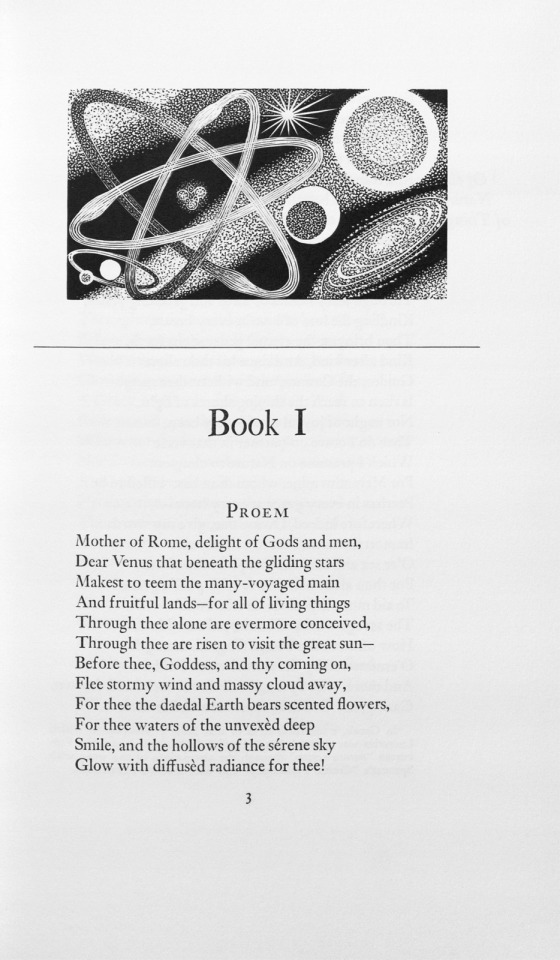

From: Titus Lucretius Carus, De rerum natura / Of the Nature of Things, translated into English verse by William Ellery Leonard, with an introduction by Charles E. Bennett, illustrated with wood-engravings by Paul Landacre, Printed for the members of the Limited Editions Club at the Ward Ritchie Press, Los Angeles, CA, 1957 [Special Collections and Archives, University of Missouri Libraries, University of Missouri, Columbia, MO]
#graphic design#typography#philosophy#poetry#drawing#illustration#engraving#book#lucrezio#tito lucrezio caro#titus lucretius carus#william ellery leonard#charles e. bennett#paul landacre#the limited editions club#ward ritchie press#university of missouri libraries#1950s
50 notes
·
View notes
Text
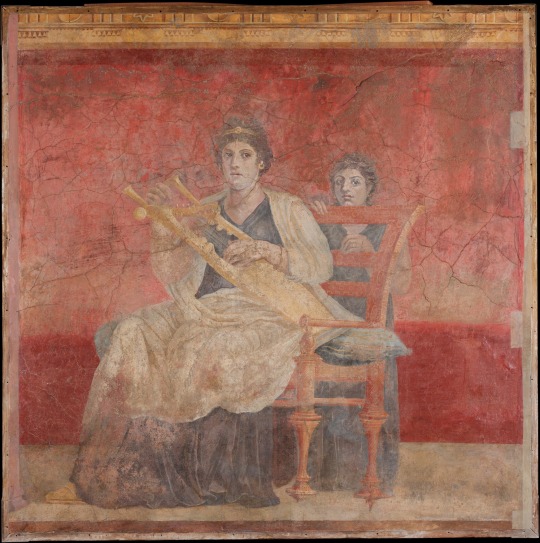
Quo magis in dubiis hominem spectare periclis
convenit adversisque in rebus noscere qui sit;
nam very voces tum demum pectore ab imo
eliciuntur et eripitur persona, manet res.
So it is more useful to watch a man in times of peril,
and in adversity to discern what kind of man he is;
for then at last words of truth are drawn from the depths of his heart,
and the mask is torn off, reality remains.
—Titus Lucretius Carus, De Rerum natura, lib iii, lines 55–58 (c 60 BCE)
[Robert Scott Horton]
11 notes
·
View notes
Text
Speaking of my personal feelings and preferences.
Lord Astarion is my food and cure when he says "hedonistic debauchery".
"What is food to one man may be fierce poison to others".
-- An phrase attributed to Titus Lucretius Carus.
#astarion#ascended astarion#lord astarion#spawn astarion#It's a big debate: what's best for Astarion. I have an adamant opinion. Ascension.#my post
10 notes
·
View notes
Text
𝐀𝐦𝐨𝐫, 𝐩𝐞𝐫𝐢𝐜𝐮𝐥𝐨𝐬𝐚 𝐩𝐚𝐬𝐬𝐢𝐨
1075 "[...] Nam certe purast sanis magis inde voluptas
quam miseris. Etenim potiundi tempore in ipso
fluctuant incertis erroribus ardor amantum
nec constat quid primum oculis manibusque fruantur.
Quod periere, premunt arte faciuntque dolorem
1080 corporis et dentis inlidunt saepe labellis
osculaque adfligunt, quia non est pura voluptas
et stimuli subsunt qui instigant laedere id ipsum
quodcumque est, rabies unde illaec germina surgunt.
Sed levior poenas frangit Venus inter amorem
1085 blandaque refrenat morsus admixta voluptas."
...
1075 "[...] Voluptuousness is more clear to the wise than to the foolish wretches.
In fact, right at the moment of full possession,
the ardor of lovers fluctuates in uncertain waves
who do not know what to first enjoy with their eyes and hands.
They press tight the creature they desire, inflict pain
1080 to her body, and often bite the tender lips to blood,
they nail her with kisses, for pleasure is not pure,
and there are dark impulses that push to tear the object,
whatever it is, from which the germs of that fury arise.
It hardly attenuates the torment Venus in the act of love,
1085 mitigates the bite, to which it is mixed, the joy of the senses."
Titus Lucretius Carus, vv. 1075-1085, De Rerum Natura IV liber.

#yandere#yandere core#tw: yandere#Latin#ancient rome#lucretius#yandere love#love#yandere anime#yandere x reader#litterature#roman literature
5 notes
·
View notes
Photo
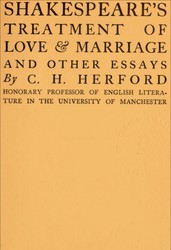
Shakespeare's treatment of love & marriage, and other essays by C. H. Herford
https://www.gutenberg.org/ebooks/69468
Author
Herford, C. H. (Charles Harold), 1853-1931
LoC No.
22002539
Title Shakespeare's treatment of love & marriage, and other essays
Alternate Title Shakespeare's treatment of love and marriage, and other essays
Original PublicationUK: T.F. Unwin ltd,1921.
Contents Shakespeare's treatment of love and marriage -- The poetry of Lucretius -- Mountain scenery in Keats -- Gabriele D'Annunzio -- Is there a poetic view of the world?
Credits Tim Lindell, Turgut Dincer, Eleni Christofaki and the Online Distributed Proofreading Team at https://www.pgdp.net
(This file was produced from images generously made available by The Internet Archive)
Language English
LoC Class
PN: Language and Literatures: Literature: General, Criticism, Collections
Subject
Keats, John, 1795-1821
Subject
Poetry -- History and criticism
Subject
Shakespeare, William, 1564-1616 -- Political and social views
Subject
Lucretius Carus, Titus
Subject
Love in literature
Subject
D'Annunzio, Gabriele, 1863-1938
Category Text
EBook-No.69468
Release Date Dec 4, 2022
Copyright Status Public domain in the USA.
4 notes
·
View notes
Note
Omg, am I the only one who just realized that Angel telling Ramiro "You can't change the nature of things" wasn't just about him being a cheating asshole but it was also a clue about how characters can't help but being attracted to the people they love outside the simulation?
Hello anon, thanks for your message! :)
Good observation and interpretation on your behalf, I definitely agree. However, I believe this statement can be construed in a broader sense, even in regards to the show's superordinate theme.
It might be an intended allusion to the scripture "De rerum natura" / "On the nature of things" by roman poet and philosopher Titus Lucretius Carus.
Lucretius has atheistically positioned himself against the belief in higher entities controlling humankind, a very mordern and therefore rejected notion at the time. Apparently he has tried to convince the Romans that "[...] no gods, but coincidence rules the world" and gods may exist, but on the same level as other living beings. Everything is formed from the same primal elements.
These might be clues for the overall operating principle and theme of this show and I think it might be helpful to have a deeper look into this.
9 notes
·
View notes